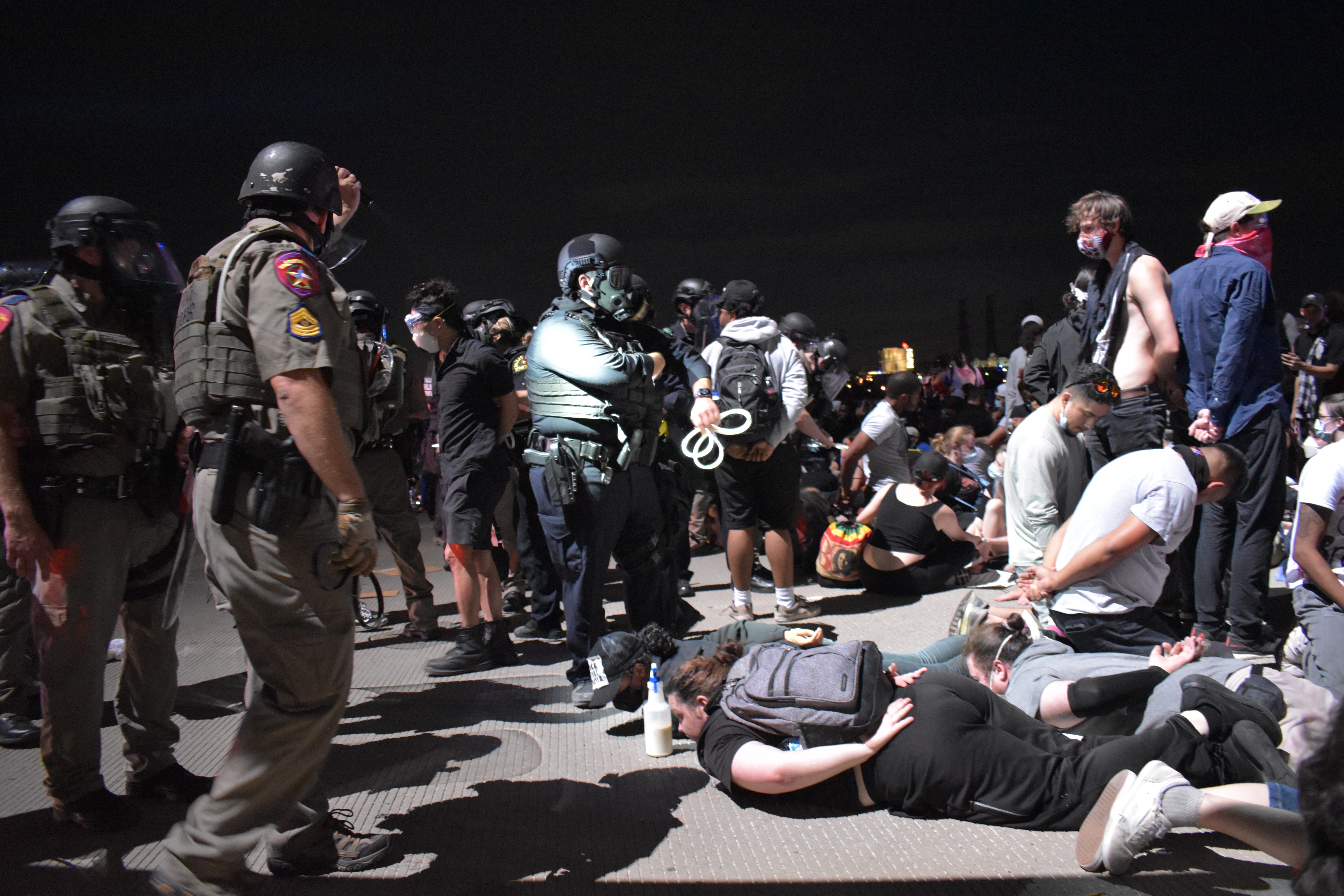The Dallas City Council had a tough meeting this week during which they discussed the future of public safety and waded into what will be a particularly difficult budget season, beset with pandemic-driven revenue shortfalls and calls to “defund” the Dallas Police Department.
During that meeting, however, no one raised this idea for police reform: fire Dallas Police Chief U. Reneé Hall.
Over on Central Track (which has been providing great front line coverage of the recent protests), Brandon Friedman says what Dallas’ elected officials don’t appear to have the courage to say publicly: it is time to hold the chief accountable for the actions of her troops.
Friedman walks through the litany of brutalities committed by Dallas police during the weeks of protest, including shooting sponge bullets at the heads of peaceful protesters and innocent bystanders alike and maiming a number of people. He mentions the disastrous night on the bridge and the video that surfaced showing DPD officers celebrating, laughing, and singing after they fired the sponge bullets that shattered the jaw and gouged out the eye of Brandon Saenz. Friedman talks about how tear gas should never be used by police departments.
But what really gets under Friedman’s skin is Hall’s refusal to take responsibility for any of these actions. Friedman is a former Army officer, and he says that in the Army, the commander of a unit takes full responsibility for everything his or her troops do. That, however, has not been Hall’s approach:
What really sealed the deal for me, though? Weeks after these “less-than-lethal” bullets’ documented use, Hall still refuses to acknowledge their deployment.
C’mon, now.
If you want to play with deadly military toys, to get lots of high-speed surplus gear and to mess around with tricked-out armoured vehicles — or, let’s face it, to just let your patrol officers play soldier — you have to be sure they’re trained and disciplined enough to wisely use all those options. You also better be prepared to answer questions about their use, such as: So, why all the headshots?
More than that, as a leader, you have to take responsibility for whatever happens next.
As a former Army infantry officer myself, I know that my fellow officers and I were instilled very early on with a clear understanding: “I am responsible for everything my unit does or fails to do.” Every military leader I’ve encountered stands by this.
When Minnesota State Police wrongfully arrested a black CNN reporter who had been covering protests in Minneapolis, Minnesota Gov. Tim Walz ate crow: “I take full responsibility,” the former Amy sergeant major said. “There is absolutely no reason something like this should happen.”
After his disastrous walk through Lafayette Square with President Trump during protests in early June, chairman of the Joint Chiefs of Staff, General Mark Milley, called U.S. senators and “took full responsibility for being there.”
That’s what military leaders do. They take responsibility for their own actions, and for those of their troops.
Chief Hall has yet to even approach that. She’s hasn’t shown that her force knows the limits of its power. She’s yet to demonstrate how her officers can responsibly wield the weaponry they’ve been provided at her discretion.
Dallas deserves a leader — something Chief Hall hasn’t yet shown herself to be since moving from Detroit for her role here in 2017.
Don’t forget: Botham Jean’s death also happened on her watch.
At this past week’s council meeting, North Dallas’ Councilman Lee Kleinman spoke most directly to ideas about police reform, arguing that Dallas’ police academy introduces officers to a culture in which officers’ loyalty is first given to their fellow officers and the department. He argued that it is secondary to performing their duty to protect Dallas residents, classifying it as a form of indoctrination that is at the heart of the problem with policing in America.
“We want to teach them the Dallas way,” Kleinman said, “which, in my opinion, starts with the very fist day a recruiter goes out and tries to find a cadet that looks like our existing department.”
This protective, circle-the-wagons attitude is precisely the behavior Chief Hall has been exhibiting over the last few weeks — that is, when she’s not claiming to have no knowledge of the tactics her cops use, like when they kettled protesters on the Margaret Hunt Hill Bridge. Hall wasn’t trained in Dallas, but that doesn’t matter. This is the way America trains its police.
If our city leaders are sincere in their desire to change the way Dallas thinks about public safety — and every council member at this past Wednesday’s meeting expressed some measure of desire to readdress public safety — then change can’t merely start at the bottom with the academy. The Council needs to ask hard questions of the chief, as well as other top brass within the Dallas Police Department who continue to protect their own even as they terrorize the citizens they swore to protect.
Hall, by the way, reports to City Manager T.C. Broadnax. So the Council can ask the questions, but it’s Broadnax who has a decision to make.





